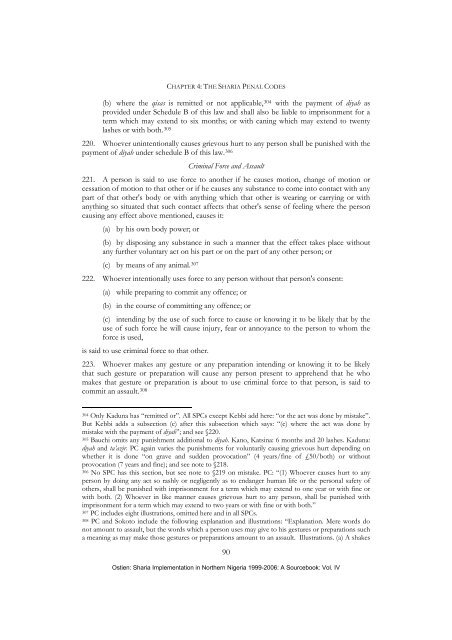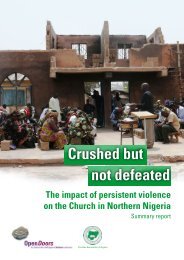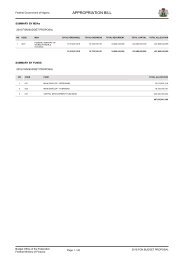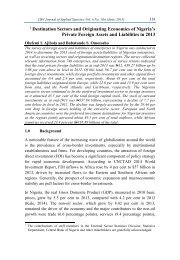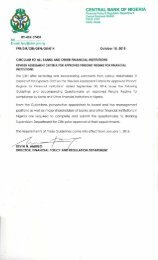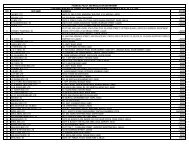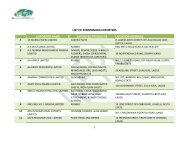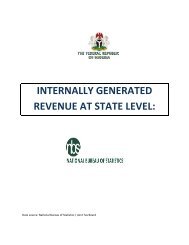vol_4_4_chapter_4_part_III
vol_4_4_chapter_4_part_III
vol_4_4_chapter_4_part_III
You also want an ePaper? Increase the reach of your titles
YUMPU automatically turns print PDFs into web optimized ePapers that Google loves.
CHAPTER 4: THE SHARIA PENAL CODES<br />
(b) where the qisas is remitted or not applicable, 304 with the payment of diyah as<br />
provided under Schedule B of this law and shall also be liable to imprisonment for a<br />
term which may extend to six months; or with caning which may extend to twenty<br />
lashes or with both. 305<br />
220. Whoever unintentionally causes grievous hurt to any person shall be punished with the<br />
payment of diyah under schedule B of this law. 306<br />
Criminal Force and Assault<br />
221. A person is said to use force to another if he causes motion, change of motion or<br />
cessation of motion to that other or if he causes any substance to come into contact with any<br />
<strong>part</strong> of that other's body or with anything which that other is wearing or carrying or with<br />
anything so situated that such contact affects that other's sense of feeling where the person<br />
causing any effect above mentioned, causes it:<br />
(a) by his own body power; or<br />
(b) by disposing any substance in such a manner that the effect takes place without<br />
any further <strong>vol</strong>untary act on his <strong>part</strong> or on the <strong>part</strong> of any other person; or<br />
(c) by means of any animal. 307<br />
222. Whoever intentionally uses force to any person without that person's consent:<br />
(a) while preparing to commit any offence; or<br />
(b) in the course of committing any offence; or<br />
(c) intending by the use of such force to cause or knowing it to be likely that by the<br />
use of such force he will cause injury, fear or annoyance to the person to whom the<br />
force is used,<br />
is said to use criminal force to that other.<br />
223. Whoever makes any gesture or any preparation intending or knowing it to be likely<br />
that such gesture or preparation will cause any person present to apprehend that he who<br />
makes that gesture or preparation is about to use criminal force to that person, is said to<br />
commit an assault. 308<br />
304 Only Kaduna has “remitted or”. All SPCs except Kebbi add here: “or the act was done by mistake”.<br />
But Kebbi adds a subsection (c) after this subsection which says: “(c) where the act was done by<br />
mistake with the payment of diyah”; and see §220.<br />
305 Bauchi omits any punishment additional to diyah. Kano, Katsina: 6 months and 20 lashes. Kaduna:<br />
diyah and ta’azir. PC again varies the punishments for <strong>vol</strong>untarily causing grievous hurt depending on<br />
whether it is done “on grave and sudden provocation” (4 years/fine of £50/both) or without<br />
provocation (7 years and fine); and see note to §218.<br />
306 No SPC has this section, but see note to §219 on mistake. PC: “(1) Whoever causes hurt to any<br />
person by doing any act so rashly or negligently as to endanger human life or the personal safety of<br />
others, shall be punished with imprisonment for a term which may extend to one year or with fine or<br />
with both. (2) Whoever in like manner causes grievous hurt to any person, shall be punished with<br />
imprisonment for a term which may extend to two years or with fine or with both.”<br />
307 PC includes eight illustrations, omitted here and in all SPCs.<br />
308 PC and Sokoto include the following explanation and illustrations: “Explanation. Mere words do<br />
not amount to assault, but the words which a person uses may give to his gestures or preparations such<br />
a meaning as may make those gestures or preparations amount to an assault. Illustrations. (a) A shakes<br />
90


